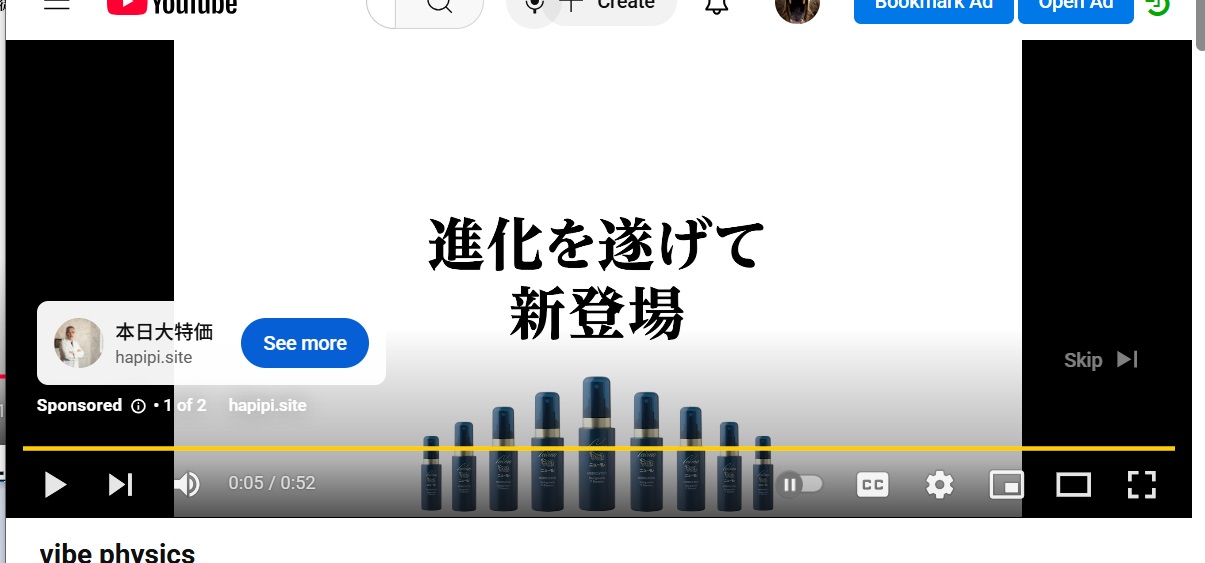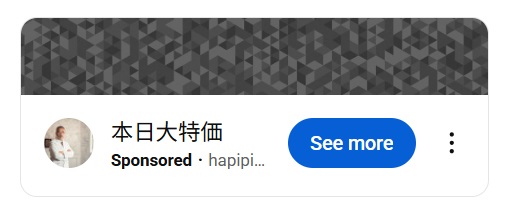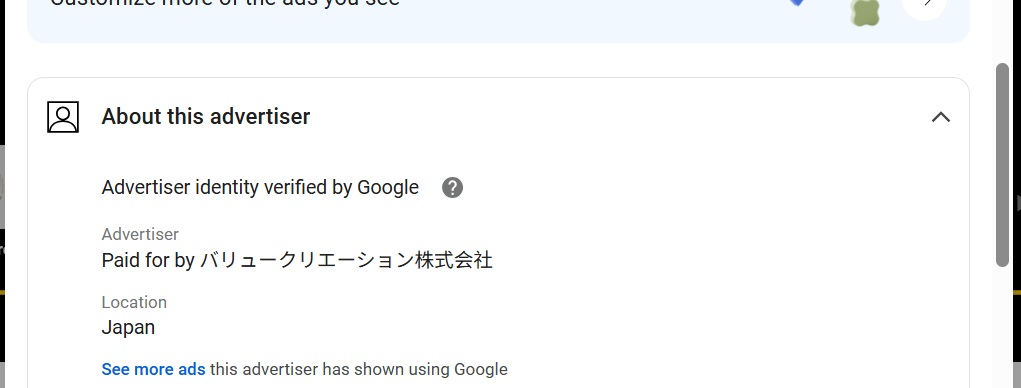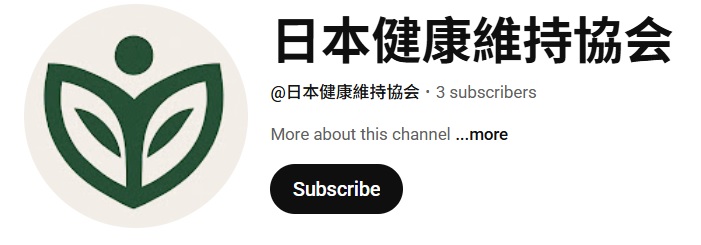This is one of the typical, unimpressive, trashy YouTube ads, like many other bullsh*t ads I routinely see 10-20 times a day. They are so abundantly common everywhere on the internet that I could even see them 200 times a day if I spent my time online entirely outside of YouTube. I mean, Google is actually doing a great job of weeding out those bad actors, to say the least, from my YouTube feed.
Unfortunately, there is still a certain number of them, and they clearly have a distinct attribute about the language—Japanese. 25% of total YouTube ad impressions are presented in Japanese on my feed. 75% among those are scam/bullsh*t, and 20% as well are kinda-legit ads for the type of merchandise I actively dislike.
As a Japanese-speaking, Japanese local man, I’m so sorry to say this, but this malicious language is the prominent component of my YouTube feed pollution. Call it an oikophobia, I don’t care. If you think anyone who doesn’t appreciate this ad is oikophobic, 99% of Japanese population is also oikophobic.
Watch this: https://youtu.be/t3GDdnlEfKg
Maybe you are not going to want to watch it, so here is just the audio file:
To clarify, I don’t see any obvious scam or other illegal activities taking place here. Anyhow, whatever they are advertising, it’s just one of many messy pieces of trash nobody picks up or even sees. I just wanted you to listen to its remarkably badly-dubbed narrations.
The audio quality and the accent of the female voice are not bad, but in terms of intonation, it’s hilariously off. This verbal caricaturization is something only an AI- voice generator can achieve, but a real human can’t. The noticeable part starts at around 9 seconds. I assume it was the same text-to-voice tool as was used in the side business scam ad from IDEAS GROVE PTE.LTD.
If there’s one more thing I can add here, it’s about the tagline. Rather, I can’t ignore this as it’s such a great epitome of Japanese kinda-legit ads—meaning, subpar-superlow quality e-commerce ads that give a sketchy impression even though they’re not a scam or fraud. So, let’s take a look at the tagline.
There’s only one word, “本日大特価”, which is translated as “Today(本日) Great(大) Special Price(特価)”. There are no identifiable individual names of the business, product, or service. You can’t even see what category they belong to. But if you look closer, there’s a clue in the little avatar image of a man with his arms folded in a lab coat, which is telling his situation at a medical institution, most likely where he is confined as a patient. It’s also telling his medical condition called anhedonia, which enabled him to put all in just one 5-letter word. He casually just did it, unlike those mediocre advertisers who struggle all the time to put their catchphrases into the 90-character limit.
Linguistically, this is so epic and intriguing, isn’t it? It may seem rather absurd and confusing to most non-Japanese people, but each word has a precise definition. They are traditionally ingrained in Japanese online ad culture, and every consumer exactly knows what they are, so I break it down. What do they actually mean by “本日大特価/Today Great Special Price”?
- There are some thing(s) and/or stuff.
- The “thing(s) and/or stuff” began to exist at some point within the last 24 hours. Possibly it’s been recurring every 24 hours, so they decided to call the latest recurrence period “本日/Today”.
- The “thing(s) and/or stuff” are so great and/or so special.
- The degrees of greatness and specialness aren’t necessarily maintained during “Today”. So you don’t have to worry if they appear less great or less special than you expected.
- Keep in mind, “Today” may be just a poetic expression of the excitement they feel today and appreciation for today’s opportunity given to the advertiser to be living and breathing upon.
- If you click the ad, you’ll eventually see some numbers of the amount of money, which are meant to be the price for either of the “thing(s) and/or stuff” they have, or of some other related thing they may not have. Either way, you are granted permission to purchase it. Congratulations!
Advertiser: Paid for by バリュークリエーション株式会社
Location: Japan
Linked website: https://hapipi.site/ab/pcjGkObPL_jDbtWiFYA?gad_source=2
Uploaded YouTube channel:www.youtube.com/@日本健康維持協会
Joined Jun 10, 2025
3 subscribers
#YouTubeAds #GoogleAds #OnlineAds #YouTube広告 #詐欺広告 #低品質オンライン広告




